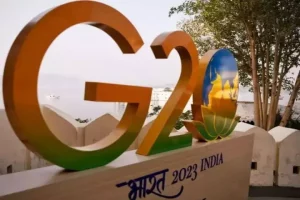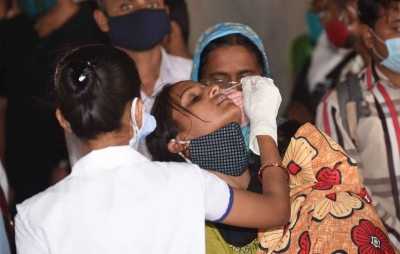American pharmaceuticals giant Merck & Co has signed a licensing agreement with the United Nations-backed Medicines Patent Pool (MPP) that will allow more companies to manufacture generic versions of its oral antiviral COVID-19 medicine, the company announced on Wednesday.
Merck said the royalty-free license would apply to 105 low- and middle-income countries. It allows manufacturers selected by MPP to make generic versions of molnupiravir, the antiviral pill Merck has developed with Ridgeback Biotherapeutics.
The U.S. Food and Drug Administration is considering emergency use authorization of the medicine, which proved in a clinical trial that it could reduce by 50% the risk of serious disease and death when given early COVID-19 patients.
"This is the first transparent, public health-driven voluntary license for a COVID-19 medical technology," Merck and MPP said in a joint statement.
Companies will be able to apply for a sub-license from MPP and the license, which also includes technology transfer, will remain royalty-free so long as the World Health Organization classifies the pandemic as a "Public Health Emergency of International Concern," the statement said.
Merck & Co had announced in April that it has signed an agreement to partner five Indian generic drugmakers, including Cipla Ltd and Sun Pharmaceutical Industries Ltd , to expand production and marketing of its experimental COVID-19 drug. The three other companies are Dr.Reddy's Laboratories Ltd and privately held companies Emcure Pharmaceuticals Ltd and Hetero Labs Ltd.
The partnership will give the companies license to supply Merck's molnupiravir to India and more than 100 low and middle-income countries following approvals or emergency authorization by local regulatory agencies, Merck said.




















